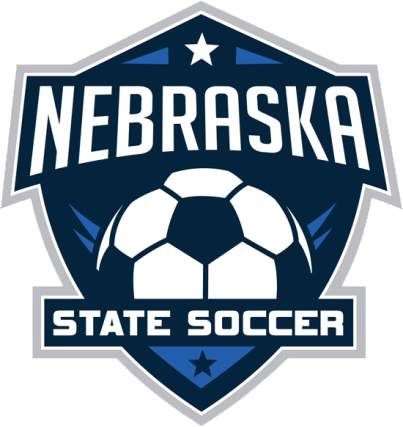CONCUSSION AWARENESS ACT
Concussion is one of the most common sports injuries among youths. Concussions may occur in any sport, not just football, known for physical contact. Concussion is synonymous with brain injury and can range anywhere from mild to severe.
Secondary impact syndrome, a second concussion occurring before symptoms of a prior concussion have resolved, can result in catastrophic brain damage or even death. Young people are especially vulnerable to concussion and secondary impact syndrome. Secondary impact syndrome is avoidable with the implementation of a no-tolerance policy for youth athletes playing with suspected concussion.
On July 1, 2012, the Concussion Awareness Act became law. All public, private, and parochial schools, as well as all organized youth sports sponsored by villages, cities, businesses, or non-profit organizations for children ages 19 and under, are required to offer training regarding concussions to coaches. Under the law, an athlete showing signs or symptoms of a concussion, thereby being “reasonably suspected” of having had a concussion, must be removed from participation and may not return until evaluated by a licensed health care professional. See “When can the athlete return to play?” below. The law passed by the Nebraska State Legislature has three requirements:
- Education: All coaches, youth athletes, and their parent or guardian must be provided with education about the risks and symptoms of concussion and how to seek proper medical attention.
- Removal from Play: Under any reasonable suspicion of concussion, coaches will remove youth athletes from play.
- Return to Play: Youth athletes will not be allowed to return to play including games, scrimmages, and practices of any kind, until written approval from an appropriate licensed healthcare professional AND the youth’s parent or guardian is obtained. Licensed healthcare professional may be a physician, physician’s assistant, nurse practitioner nurse, athletic trainer, neuropsychologist, or any licensed healthcare worker in Nebraska who is specifically trained in pediatric traumatic brain injury.
The Nebraska Concussion Awareness Act was amended in 2014 to include help for the student returning to school after a concussion. Effective July 2014, this new component established the requirement for a Return to Learn protocol for the student who has sustained a concussion.
The Nebraska Concussion Awareness Act Return to Learn protocol recognizes that a student who has sustained a concussion and returned to school may need special attention and assistance until the student is fully recovered.
RECOGNIZING A CONCUSSION
Recognize the First Concussion; Avoid the Second
Failure to recognize and properly manage a concussion can lead to an injury known as “second impact syndrome.” Second impact syndrome can cause a lifetime of disability or can be even fatal.
Second impact syndrome is preventable – if there is recognition and proper management of concussions – when they first occur. It can help prevent further injury or even death from a second impact concussion. Stress this to your children. They must let someone know if they have experienced a concussion even in another sport or off the field.
Recognize the First
- All concussions are serious. A concussion is not: “Getting your bell rung” or “getting dinged.” IT IS A BRAIN INJURY.
- Concussions can occur without loss of consciousness. It is up to the parent to recognize signs of concussion or brain injury.
- Concussions can result from motor vehicle crashes, falls, sports injuries, physical abuse and other cause. In ages 15-24, sports are the second leading cause of traumatic brain injury.
- A brain injury has a more devastating impact on a child than an injury of the same severity has on a mature adult. The cognitive impairments of children may not be immediately obvious after the injury but may become apparent as the child gets older and faces increased cognitive and social expectations for new learning and more complex, socially appropriate behavior and/or physical disabilities. These delayed effects can create lifetime challenges for living and learning for children, their families, schools and communities.
- Parents want to see children excel and be accepted, but let your children know that their life, health and future are more important to you than any game. Nebraska coaches report that parents are sometimes an obstacle to pulling a child who may have suffered a concussion from play.
Give your child time to get better
- Most children or persons with a concussion will recover quickly and fully. But for some, the signs and symptoms of concussion can last for days, weeks or longer.
- Because delayed onset of symptoms during the first 24 to 48 hours is possible in children, parents – or another responsible adult – should closely and periodically monitor the child during this time.
- Rest is important and your child should not return to learn or play until you get the OK from your healthcare professional.
Resources for Parents
- Concussion 101: Guide for Parents
- Heads Up Concussion Resources for Parents
The Heads Up to Parents website offers Videos, Customizable Fact Sheets, Tools and Tip and Trainings. - Get the App to Identify Concussions
The new Heads Up app features a Helmet Selector, Brain Injury Basics and Safety Tips. - The Whole Family Helps the Child with a Brain Injury
Doctor discusses the role the entire family plays in a child’s recovery from TBI — from being able to care for and push the child during rehab therapy to reinforcing those therapies in the home. - Bridging the Gap: Return to Learn
Returning to play is not the only issue, Returning to Learn – concussion management in the classroom is important. The Nebraska Department of Education provides resources and assistance for returning to the classroom after a brain injury.

